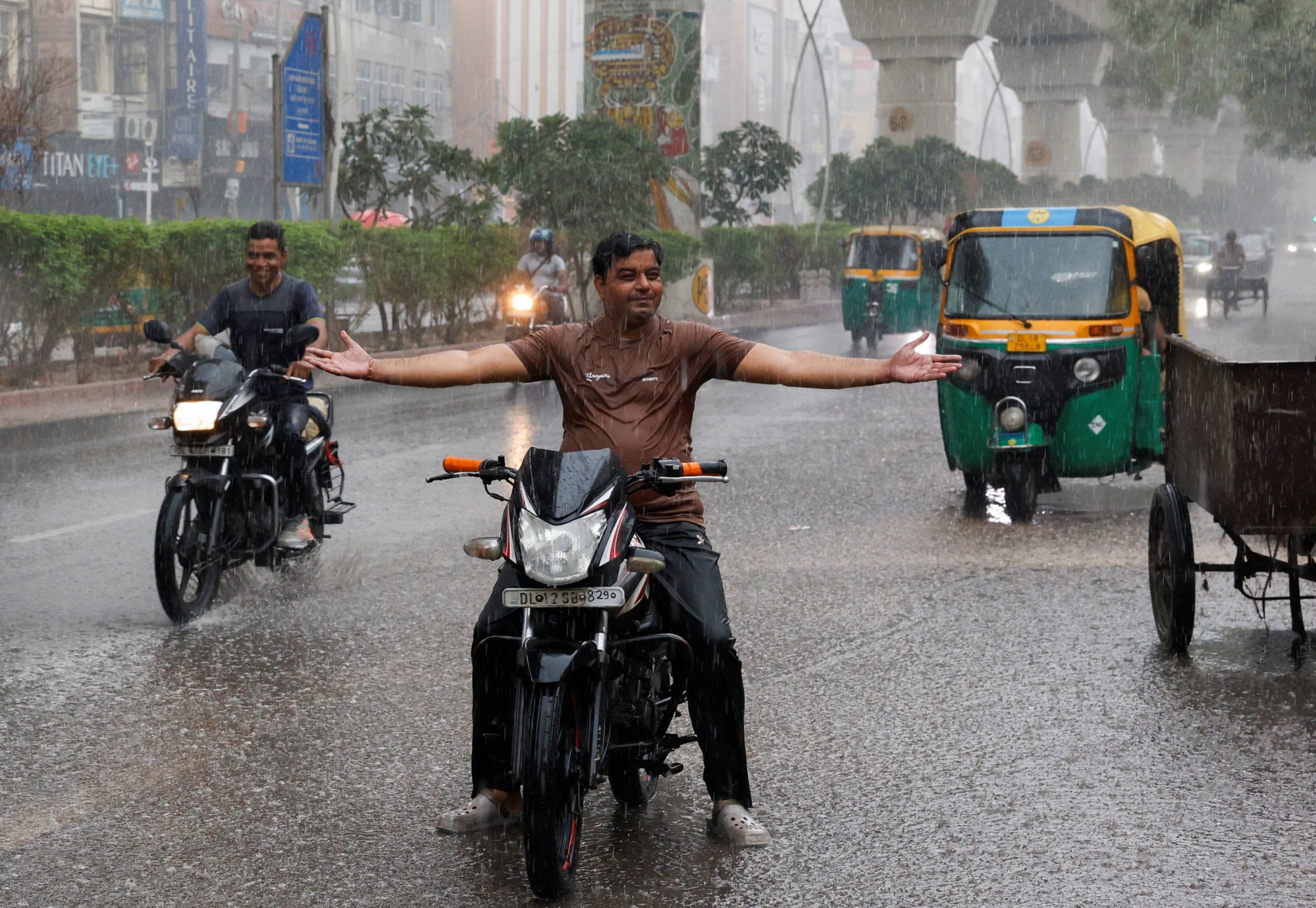How India’s capital went from extreme heat to heavy floods
Delhi has not recorded so much rain in the entire month of June, at least in the last 15 years, IMD data shows. On Friday, in three hours alone, areas around the Delhi airport got 148.5mm of rain, compared with 101.7mm for all of June last year.
The seasonal monsoon rain, which slowly covers the country beginning from its southern tip at the end of May, brought respite from heatwave conditions that persisted in Delhi until last week. Temperatures this summer has neared 50 degrees Celsius in the city, and it has recorded at least 40 consecutive days of temperatures at or above 40 degrees Celsius till June 22, according to IMD data.

Why the extremes?
For every degree increase in earth’s temperature, the amount of water vapour in the atmosphere can increase by about 7 per cent, according to a Nasa article. Experts say that can lead to heavy rains in a short period of time.
“Because of climate change, you will get more extreme rain events, which means more rain in a fewer number of rainy days, rainy hours,” Sunita Narain, director general of research body Centre for Science and Environment, said in a recent video post.
“If you look at the data from across India, you will find that many weather stations are already reporting that they are breaking the record of 24-hour rainfall, which means that a city, a region, can get its annual rain, as much as a whole year’s rain, in a matter of a few days or even one day.”
What needs to be done?
Delhi has endured erratic monsoon patterns over the last 40 years, facing both deficient and excessive rainfall, said Vishwas Chitale, at think-tank Council on Energy, Environment and Water.
“Such skewed distribution of rainfall impacts infrastructure and people severely, which re-emphasises the importance of climate proofing infrastructure and the economy,” he said.
Experts say India needs to dig more lakes and ponds to store the water from heavy rain to prevent massive water shortages in places like Delhi and Bengaluru. Municipalities need to ensure drains and canals are unclogged to avoid heavy flooding and major disruptions.
The country also needs to substantially increase its green cover and raise public awareness about the impacts of heat, stagger work hours and change school timings.